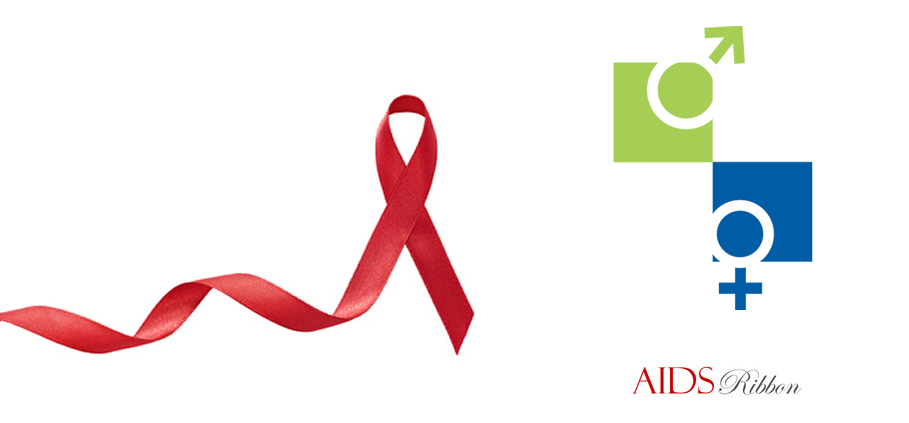News
The usefulness of regular check up in men
Anastasios D. Kalantzis, Surgeon Urologist-Andrologist
Men, as opposed to women, do not see their doctor regularly for the check-up of their genital organs and reproduction system. As specialists explain, men have the tendency to see an andrologist solely on occurrence of a specific disorder. Undoubtedly, the early diagnosis of certain disorders leads to a more proper and effective treatment and this applies to both benign and malignant conditions. A regular check up is the best prevention way, as it guarantees the timely diagnosis of a disorder or disease which can have a negative effect on the daily routine and the life of every man.
The aim of the regular check up to asymptomatic (without symptoms) adults is the prevention of morbidity and mortality, by identifying risk factors, early clinical signs and symptoms of diseases that can be cured. As regards the types of tests that the check up should include and the time period within which it must take place, this still remains a question without a completely unanimous answer.
In the past, most medical unions recommended annual check up. Recently, however, the American Medical Association, as well as other reliable medical organizations, have started recommending less frequent check ups. Consequently, the recommended frequency of check ups in healthy adults has been defined as such:
- • For men of 19-40 years of age, once every 5 years.
- • For men of 40-65 years of age, once every 1-3 years.
- • For men of 65 years or older, once a year.
The kind and number of lab tests that will be included in the check up will be decided by the Urologist-Andrologists, based on the medical history of the individual, the findings of the clinical examination as well as his age. However, there are certain blood and urine tests which define the general health condition of the individual and more specifically the condition of his vital organs.
These include:
-
- -Complete Blood Count.
- -Erythrocyte Sedimentation Rate (ESR).
- -Blood Glucose (check for diabetes melitus).
- -Blood urea nitrogen (BUN) and Creatinine (kidney function check).
- -Transaminases, γGT (liver function check).
- -Total Choloesterol, HDL, LDL, Triglycerides (lipidaemic profile test).
- -Uric Acid (hyperuricemia check).
- -Ειδικό Προστατικό Αντιγόνο-PSA.
- -Urinalysis (check for diseases of the urinary system).
- -Chest X-ray (reference X-ray for possible future findings).
- -Electrocardiogram (ECG) (wide range check of cardiac function).
- -Ultrasound test of the urinary system (provides information regarding the anatomy of the kidneys, the urinary bladder and the prostate and evaluates bladder emptying).
- -Urine Flow Rate (Uroroometry)
The PSA (prostate-specific antigen) test defines the value of a prostatic enzyme and can reveal any pathology in this gland, either an inflammation (prostatitis), inflation (benign hyperplasia) or cancer. Doctors encourage annual screening for men over 50 years of age, while it would be advisable that individuals with heavy medical history or at a higher risk of prostate cancer should begin screening at the age of 40.
Prostate cancer is the development of cancer cells in the gland. It is the second leading cause of deaths from cancer in the male population. It is usually observed in men of 60-80 years of age, has a slow development, does not metastasize and its timely diagnosis and proper treatment has positive results. Since in its earlier stages there are no symptoms, men over 45 years must undergo clinical examination and laboratory tests once a year. There are no clear causes for the appearance of prostate cancer, but major contributing factors are age, heredity, nutrition, male hormones and race.
Testicular cancer is a relative rare cancer, affecting only 2% of male population and has one of the highest cure rates of urinal cancer, with 90% viability if diagnosed in its early stages. Unfortunately, in relation to other age groups, it “prefers” adolescents and young males of 15-34 years and is the 3rd in ranking cause of death in these ages. The cause – pathogen of testicular cancer is virtually unknown. There are many factors which could be incriminated and associated with testicular cancer, such as traumas, repeated infections, administration of estrogens during pregnancy etc., further to cryptorhidism, which is the only confirmed cause for the development of testicular cancer.
However, it is not only the prostate cancer, the testicular cancer or other disease of the prostate, testicles and penis that need immediate treatment. Also the Sexually Transmitted Diseases are very widespread and their expansion is rapidly increasing globally. Their expansion rate varies according to each disease, but they still constitute a significant and serious problem for Public Health and concern all individuals with active sexual life.
In comparison to other age groups, the young and the adolescents belong to the high risk group for acquisition of STDs due to their sexual behaviour (multiple sexual partners, lack of protective measures). Women, in contrast to men, face more serious implications and complications of STDs and are biologically more susceptible to acquiring some diseases, such as HPV, gonorrhea, Chlamydia. Due to the development of infectious diseases of the pelvis, some STDs may lead (men and women) to Infertility, Sexual Behaviour Disorder (dyspareunia, vaginismus, orgasm disorder) or even disorders during pregnancy. It is estimated that 20-30% of premature labour, infant mortality or disabilities is caused by STDs.
Another, very serious problem which is a characteristic “phenomenon” of our times and affects sexually active people of both sexes and regardless of age, is the problem of sexual dysfunctions.
As sexual dysfunctions are defined the conditions that cause disorder in the sexual function of the person. These are disorders that do not allow sexual satisfaction and in certain cases even sexual intercourse, leading to a negative effect in the quality of life. For the cure of sexual dysfunctions a combination of treatment with psychotherapy is often required.
The sexual desire disorders in a person depend on many factors, such as long-lasting abstinence, interpersonal differences with the sexual partner, fatigue, stress, chronic anxiety, Religious and Social taboos, lack of education around sex. The causes may be physical (vascular, neurogenic, hormonal, chronic diseases, use of pharmaceutical substances, underlying malignant diseases of the lower urogenital system), psychogenic (depression, performance anxiety) or aging.
Among the commonest conditions are:
- Decreased Libido: Difficulty in, or absence of, sexual fantasies and desire for sexual activity. Treatment is administration of medication or surgical operation.
- Sexual Aversion: Aversion to or avoidance of contact with the genitalia and any sexual contact, either with a partner or via self-satisfaction. Treatment is administration of medication or surgical operation.
- Erectile Dysfunction: Erectile dysfunction is characterized as a Disorder and is the permanent or periodic inability of the man to achieve and maintain an erection sufficient for a satisfactory sexual intercourse. The causes may be physical (vascular, neurogenic, hormonal, chronic diseases, use of medical substances, infections, undercurrent malignant conditions of the lower urogenital system), psychogenic (depression, performance anxiety) or advanced age. The therapeutic options are many and various, such as prescribed medication, surgical treatment, and proper psychotherapeutic treatment.
- Orgasm Disorder (anorgasmia): Repeated delay or absence of orgasm after a normal sexual excitement. The causes may be physical (vascular, neurogenic, hormonal, chronic diseases, use of medical substances, infections, undercurrent malignant conditions of the lower urogenital system), psychogenic (depression, performance anxiety) or advanced age and cause difficulty in interpersonal relationships and intense subjective embarrassment. Treatment may be pharmaceutical or surgical.
- Premature Ejaculation: As premature ejaculation is defined “the lack of ability of the man to control his own ejaculation, as a result sexual climax (orgasm) occurs involuntarily, with minimum sexual stimulation, before, during or almost immediately after penetration, and before he wishes it”. This condition is caused by psychological and biological factors. The causes may be physical (vascular, neurogenic, hormonal, chronic diseases, use of medical substances, infections, undercurrent malignant conditions of the lower urogenital system), psychogenic (depression, performance anxiety) or advanced age. Treatment consists of administration of medication psychotherapeutic support.
- Retarded Ejaculation: Retarded ejaculation is the difficulty in ejaculating during sexual intercourse or is only able to ejaculate after prolonged intercourse. This condition is caused by psychological and biological factors. The causes may be physical (vascular, neurogenic, hormonal, chronic diseases, use of medical substances, infections, undercurrent malignant conditions of the lower urogenital system), psychogenic (depression, performance anxiety) or advanced age. Treatment consists of administration of medication psychotherapeutic support.
For these reasons we should leave behind any taboos or social prejudices of the past generations and start realizing that prevention is the key that will protect us from future dangers and guarantee a better quality of life. We should, therefore, let our doctor evaluate the severity of our symptoms and achieve a complete and clear view of our health condition, in order for us to be able to live our everyday life without nuisances or fears.



